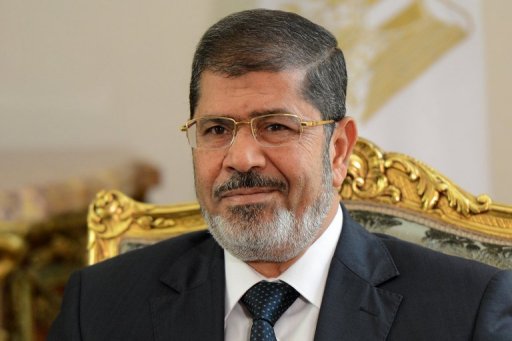
President Mohamed Morsi’s controversial constitutional declaration left many wondering whether it was a necessary evil to purge Egypt’s judiciary or merely a power grab disguised as such.
The seven-article constitutional declaration announced Thursday night arguably paved the way for a new dictatorship as Morsi significantly broadened his powers, giving himself complete immunity until a new constitution is in effect.
In the second consecutive standoff with the judicial system, Morsi awarded himself the authority to appoint the general prosecutor, naming Judge Talaat Ibrahim Abdullah, a former deputy head of Egypt’s Court of Cassation, for the position.
The declaration stipulated that the general prosecutor is to serve a closed four-year term, and must be at least 40 years old.
To ensure he doesn’t go down the same path he did last month when he attempted to sack now former general prosecutor Abdel Meguid Mahmoud, the new constitutional declaration protects Morsi’s decisions, laws and decrees from being appealed or canceled by any individual or political or governmental body. Outgoing general prosecutor Abdel Meguid Mahmoud, who stood his ground in October, had no comment on the matter.
The new general prosecutor is a member of the Independent Judges Movement and was one of the judges that uncovered the rigging in 2005 elections, according to Gehad El-Haddad, senior advisor to the Muslim Brotherhood and the Freedom and Justice Party.
Abdullah’s first order of business was to reopen the investigations with ousted President Hosni Mubarak, his last minister of interior Habib El-Adly, and his 6 of his aides, formerly accused and acquitted of killing protesters in the January 25 uprising.
However, while such decisions may normally be welcomed, they were overshadowed by anger towards a president who seems to be walking down his predecessor’s path to impunity.
An hour before the declaration was announced by presidential spokesperson Yasser Ali, hundreds of Muslim Brotherhood members had already gathered in support of Morsi’s declaration, demanding the cleansing of Egypt’s judicial system in front of the Supreme Court of Justice.
Purging Egypt’s judicial system, along with its different institutions, has been a long time coming. However, many see that a constitutional declaration that grants the president absolute power was not the way to go about it.
Raafat Fouda, constitutional law professor at Cairo University, congratulates the new general prosecutor for the position, however he laments the pretext under which he was appointed. “As [Abdullah] married the post, Egypt, the bride, was buried,” he said, warning that the new general prosecutor is not bound by any laws and is free to do whatever he pleases. While he acknowledges the necessity of cleansing the judiciary, he rejects it being done at the hands of the president. “The cleansing of the judiciary should be done internally,” he said.
The constitutional declaration also protects the Constituent Assembly and the Shura Council from dissolution by any judicial authority.
Moreover, in an especially ominous article, Morsi awarded himself the right to take any measures he sees fit in order to protect the revolution, and preserve national unity and security. This provision is reminiscent of the notorious emergency law through which arbitrary arrests were made under the pretense of protecting national security.
Many pundits, including Mohamed ElBaradei, were quick to deem the revolution “aborted” following Morsi’s declaration. Other positive decisions to give pensions to the families of the martyrs of the January 25 Revolution and increasing reparations to those injured are eclipsed by fears of a new pharaoh in the making.
Dalia Rabie is a journalist based in Cairo. She worked as the Features Editor for Daily News Egypt where she covered topics ranging from politics to culture and lifestyle, with a special focus on human interest issues.
Photo Credit: AFP
Image: Morsi_0.jpg
